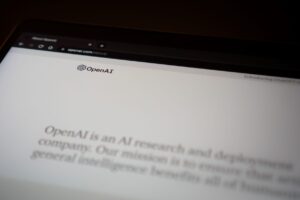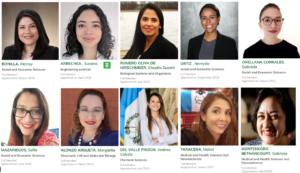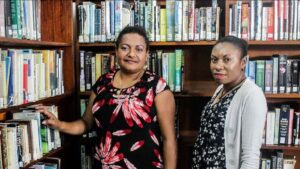Overcoming challenges to research access in Sri Lanka
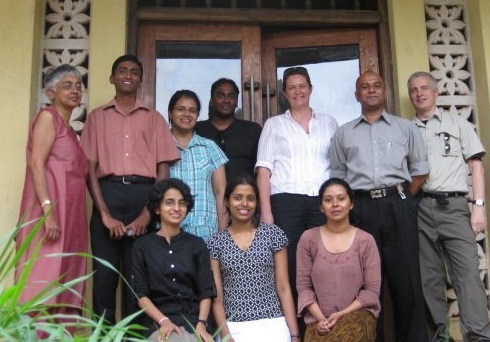
Professor Thevanesam and her research team have collaborated with many researchers working in the field of infectious diseases.
Vasanthi Thevanesam is Emeritus Professor at the University of Peradeniya, Sri Lanka. In the context of her own research on infectious diseases, she explains why access to the latest research is so vital for academics and clinicians in developing countries.
Large chunks of the population in many tropical countries, like Sri Lanka, are exposed to a number of infectious diseases rarely encountered in more developed countries. In order to reduce the incidence of such diseases, we need to monitor them accurately. This is a challenge, because there is currently very little accurate and reliable information about many of these infections at the local level in Sri Lanka.
One of the main reasons it is so difficult to obtain this information is a lack of affordable, accurate and timely diagnostic tests for many infectious diseases. The absence of appropriate diagnostics compromises patients’ access to high-quality essential healthcare services and medicines.
My research team and others have worked hard to ascertain the usefulness of tests used to diagnose infections like typhoid, leptospirosis, melioidosis and tuberculosis, and, through reliable tests, to communicate the information we have gathered to policymakers. This work enables the available data to be used to inform appropriate preventive actions, thereby reducing the risk of infectious diseases to individuals.
Challenges facing academics in Sri Lanka
Of course, improvements to health and wellbeing depend upon the existence of a thriving research and knowledge sector – but there are many challenges to this sector in Sri Lanka. It has suffered from low financial investment for many years and a lack of trained personnel, due to prolonged civil conflict and a ‘brain drain’. Poor infrastructure has also had a negative impact on researchers, many of whom have moved to countries that are better equipped with the tools and facilities they need for their research.
Moreover, many key journals in my own field of infectious diseases still have substantial subscription costs, which are not affordable for many individuals and institutions. Language is another major barrier to accessing published research, in cases where English (or another international language) is not the first language of the researcher.
Additionally, there are limited opportunities for publication when working in a relatively unknown research environment, which needs to be acknowledged and addressed by the wider research community.
Improving access to research in Sri Lanka
Encouragingly, in recent years, there has been a lot of discussion around these issues. While much remains to be done, some positive steps have been taken to improve the research culture in Sri Lanka. Improvements in internet access across the country have allowed Sri Lankan researchers to join global networks in their area(s) of interest. In addition, the increase of open-access journals, including locally produced journals hosted on the Sri Lanka Journals Online (SLJOL) platform, has given academics better access to published research, without delay and at no cost. The Consortium of Sri Lankan Academic Libraries (CONSAL), alongside the University Grants Commission, has made great progress in providing access to internationally published research literature.
Furthermore, initiatives for improving reading and writing skills, as well as publishing short summaries of research articles in simple English, could help young researchers build their knowledge of the rapidly expanding literature more easily, enabling them to be more intentional about what they read. Also, on a local level, we need to work on improving the communication capabilities of researchers and motivate them to publish their work, so that the results of their work are not lost to the research community.
[For more on support to researchers from INASP, in Sri Lanka and beyond, see the AuthorAID project and for information about INASP work with local published journals see the Journals Online project.]
From research to action
Despite the challenges of working in such an under-funded research landscape, I have personally encountered many clinicians and microbiologists who have inspired me in my research over the years. Infectious diseases fascinated me from an early stage of my career, as they cross all boundaries of medical specialties and have the capacity to surprise both clinicians and researchers. To contribute, even in a small way, towards reducing the burden of disease and death caused by infections has been immensely satisfying in a career lasting over 40 years.
—-
Professor Thevanesam’s research focuses on infectious diseases in Sri Lanka, with particular interests in surveillance, diagnostic tests, and the appropriate use of antimicrobials in treatment. She has studied a range of common infections in Sri Lanka, such as typhoid, leptospirosis, tuberculosis, rickettsiosis, hepatitis, dengue fever and melioidosis, and she has collaborated with others to research the antimicrobial activity of plants and traditional medicines used in treatment of infections. Her research falls under the third Sustainable Development Goal (SDG) – to ensure healthy lives and promote wellbeing for all at all times. She is one of the speakers at the forthcoming Publishers for Development conference.

 Previous Post
Previous Post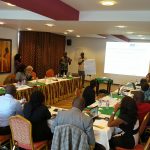 Next Post
Next Post